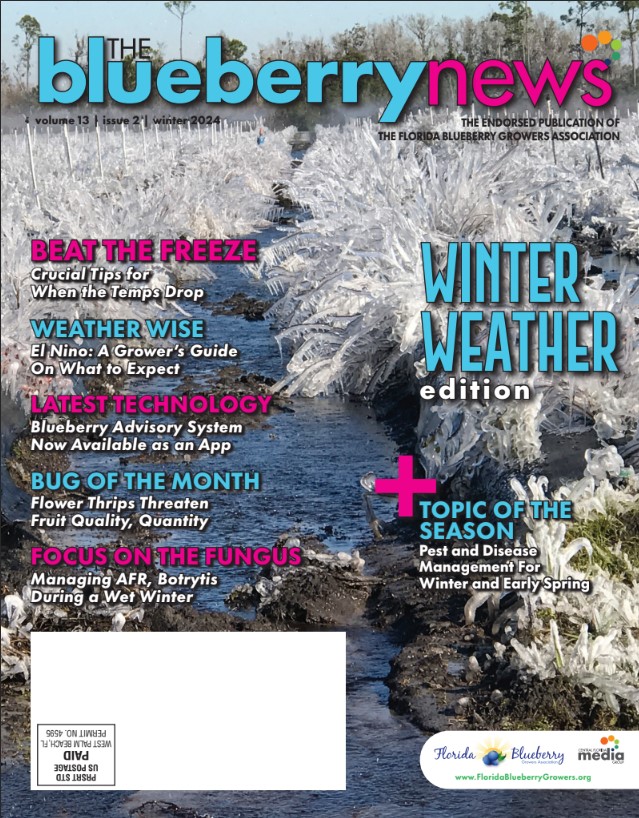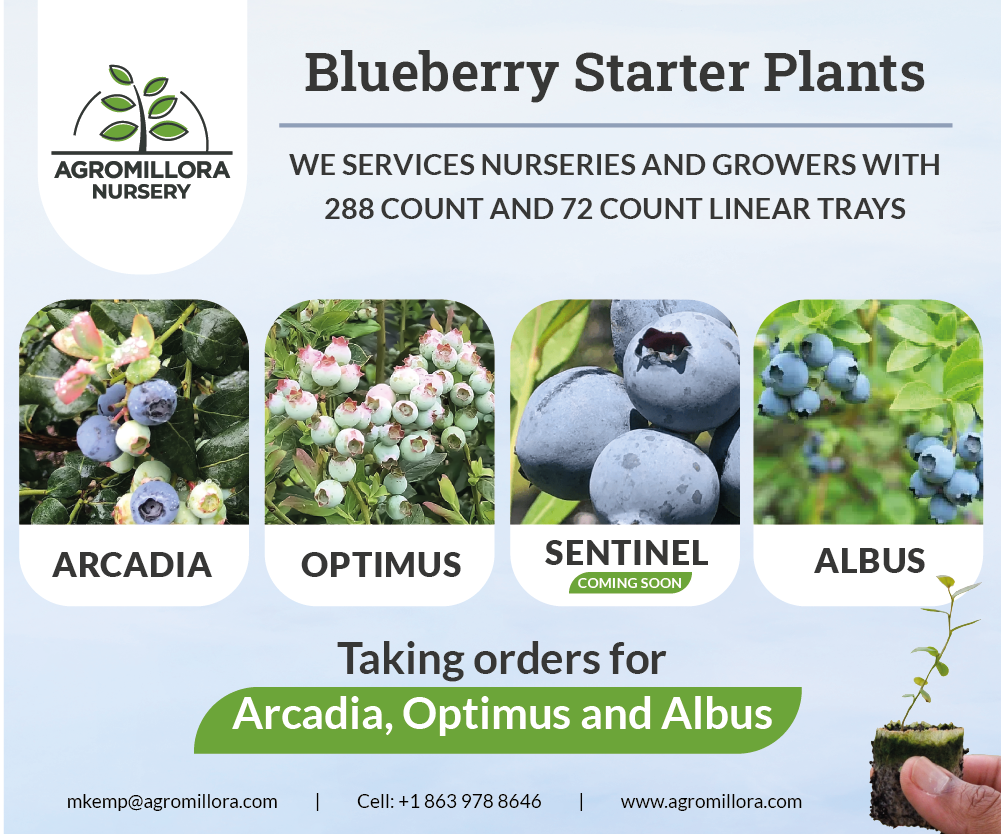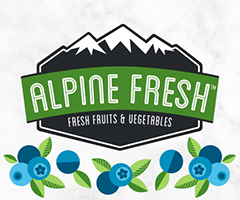Blueberries Currently Not Included in Category 1 CFAP Funding for Losses Due to Coronavirus
By PAUL CATALA
It wasn’t exactly the kind of news blueberry farmer Kyle Straughn wanted to hear in a year already filled with hardships and struggles on and off the farm.
That news was that the United States Department of Agriculture (USDA) had decided not to include blueberries in Category 1 Coronavirus Food Assistance Program (CFAP) payments. Those payments are going to farmers, ranchers and growers who “had crops that suffered a 5% or greater price decline between mid-January and mid-April as a result of the COVID-19 pandemic,” according to the North American Blueberry Council in Folsom, California.
CFAP, a USDA initiative, also provides financial assistance to farmers who face additional market costs. Eligible commodities include non-specialty crops like malting barley, canola and corn; wool, livestock and dairy; and specialty crops fruits such as blueberries, cantaloupe, apples, artichokes, garlic, nuts, beans and mushrooms.
CFAP is a $19 billion immediate relief program which includes direct support to agricultural producers. Eligible farmers and ranchers will receive one CFAP payment, from either $9.5 billion in appropriated funding provided in the Coronavirus Aid, Relief, and Economic Security Act. It compensates farmers for losses due to price declines between mid-January 2020 and mid-April 2020 and for specialty crops that were shipped and spoiled.
Another funding source uses the Commodity Credit Corporation Charter Act to compensate producers for $6.5 billion in losses due to ongoing market disruptions. However, the USDA had already decided not to include blueberries in Category 1 options for growers.
However, May 22, the North American Blueberry Council officially filed through the United States Department of Agriculture’s (USDA) Notification of Funds Available process to have blueberry growers included in the Category 1 classification for Coronavirus Food Assistance Program (CFAP) payments.
That inclusion can’t come soon enough for farmers like Straughn of Archer near Gainesville. He says the decline in blueberry harvest and prices are “100 percent correlated to the coronavirus.”
“If there’s a year that we need it, it’s this year. I try to get upset about things I can’t control. I don’t have much emotion about it, but I never expected it,” says Straughn, whose company has owned 750 acres of blueberries in Waldo since 1981.
Straughn says he doesn’t see enough “political power” in specialty crops in Florida to warrant a Category 1 classification and funding.
“The people that need it the worst won’t get it, we’re not big enough to have the resources to make enough noise,” he says. “We’re being left out because we don’t have enough political power for someone to listen.”
Following the USDA decision, the Council has worked to have blueberry farmers and farms included in Category 1, citing data used by USDA established a “false narrative” about what growers experienced between the spread of the coronavirus from January 15 to April 15.
According to its web page, the NABC has continued to work with leaders from the NABC’s state organizations to compile data to get blueberries included.
“In addition to filing the NOFA comments, NABC has worked closely with the leadership at USDA to have our industry’s appeal heard and understood,” stated Kasey Cronquist, president of the North American Blueberry Council and U.S. Highbush Blueberry Council. “We understand just how important the Category 1 designation is for our growers. We’ll continue to work closely with your leadership at the Florida Blueberry Growers Association to make sure that blueberries are included in the Category 1 opportunity for CFAP payments.”
Blueberry farmers are eligible for the Coronavirus Food Assistance Program categories 2 and 3, which are broken down into three categories:
-
Had crops that suffered a 5 percent-or-greater price decline between mid-January and mid-April as a result of the COVID-19 pandemic,
-
Had produce shipped but subsequently spoiled due to loss of marketing channel, and
-
Had shipments that did not leave the farm or mature crops that remained unharvested.
Brittany Lee, Florida Blueberry Growers Association executive director in Gainesville, says the decision not to exclude blueberries from CFAP Category 1 assistance will be “financially devastating” for blueberry farmers. She says she hopes appeals to be included will be successful.
The period to appeal ended June 22, and Lee says she hopes to hear a decision “a bit after that.” The appeal to the NABC was filed May 22 and June 4 to the Florida Fruit & Vegetable Association.
“We have applied for eligibility to be reviewed with NABC and Florida Fruit & Vegetable Association to gain that Category 1 eligibility and we’re still in the review process,” says Lee, who owns the 86-acre Florida Blue Farms Inc. outside of Gainesville. “Of course, it’s our hope the department will approve our appeal and allow Florida blueberry growers to apply for Category 1 assistance due to price injury, that we clearly experienced.”
Other Florida blueberry farmers such as Ryan Atwood, president of the Florida Blueberry Growers Association, says he thinks being included in Category 1 – which includes produce such as almonds, broccoli, cabbage – is vital to his industry because it will help stabilize the market.
Atwood insists that Category 1 is where most of the farmers were impacted when the coronavirus gained steam in mid-March. He says before the pandemic, everything was “doing fine” and once businesses started shutting down, there was an immediate impact.
“When the news came out, it was pretty shocking, the fact blueberries got left out was unbelievable,” he says. “We had much greater than 5 percent sales damage due to Covid. Our prices were down 35 to 50 percent. My understanding is the government had some money set aside. My hope is they’ll put blueberries back in Category 1 and have money to allocate for that purpose.”
The USDA issued CFAP guidelines May 21 and at that time allowed for a comment period. The hope for growers is that could bring changes and/or amendments to guidelines for blueberry producers.
USDA is accepting applications through August 28, 2020. Learn more at www.farmers.gov/cfap.





